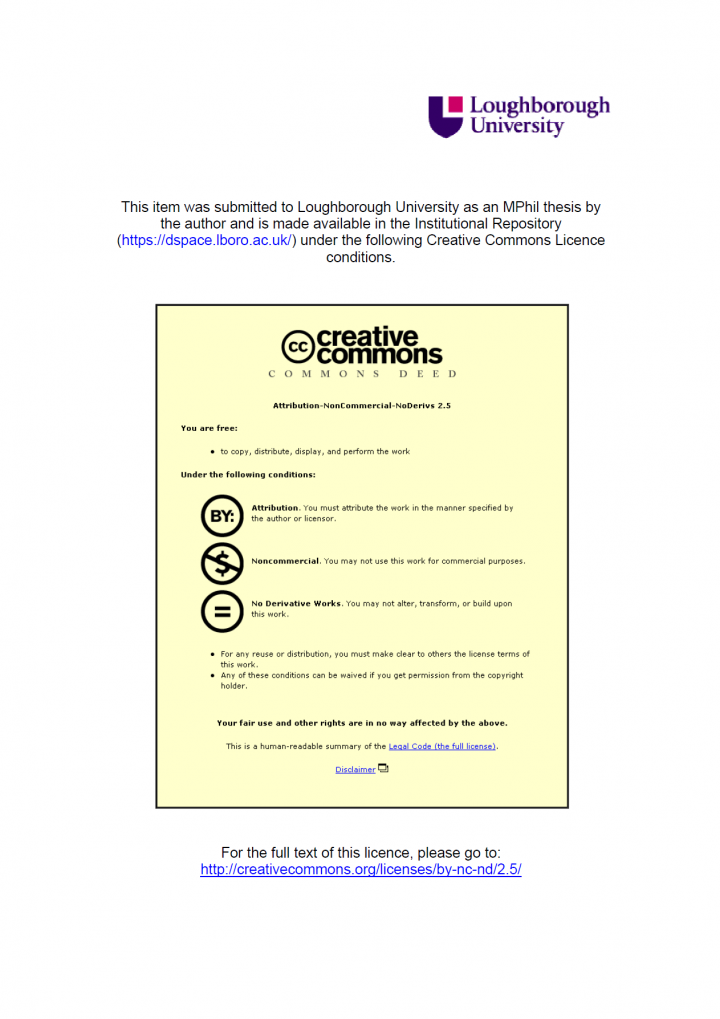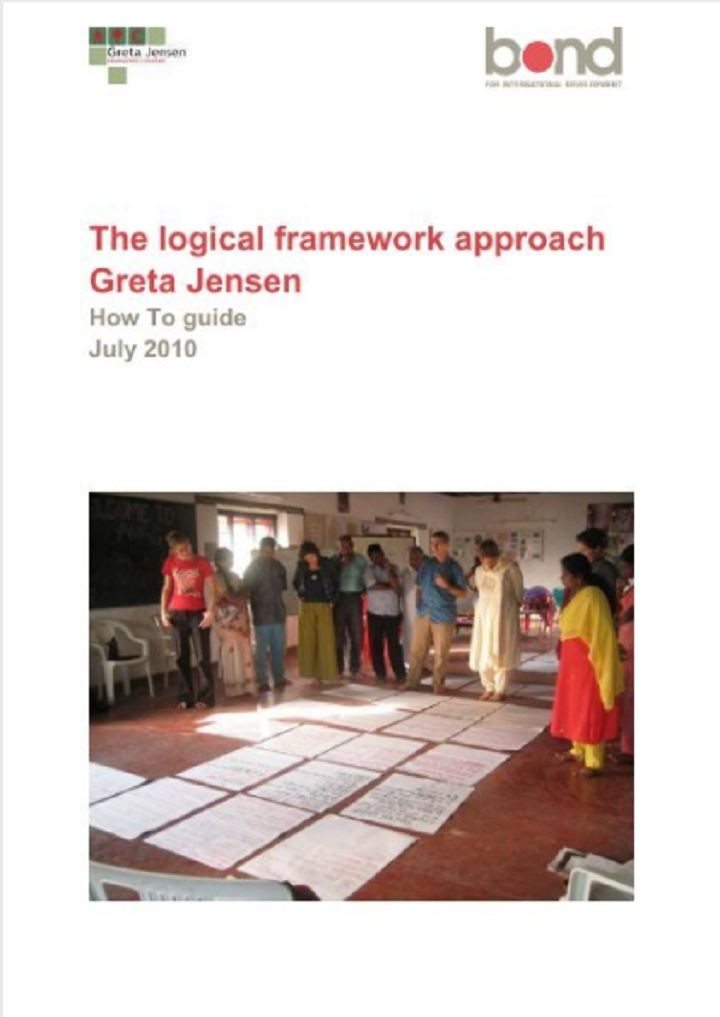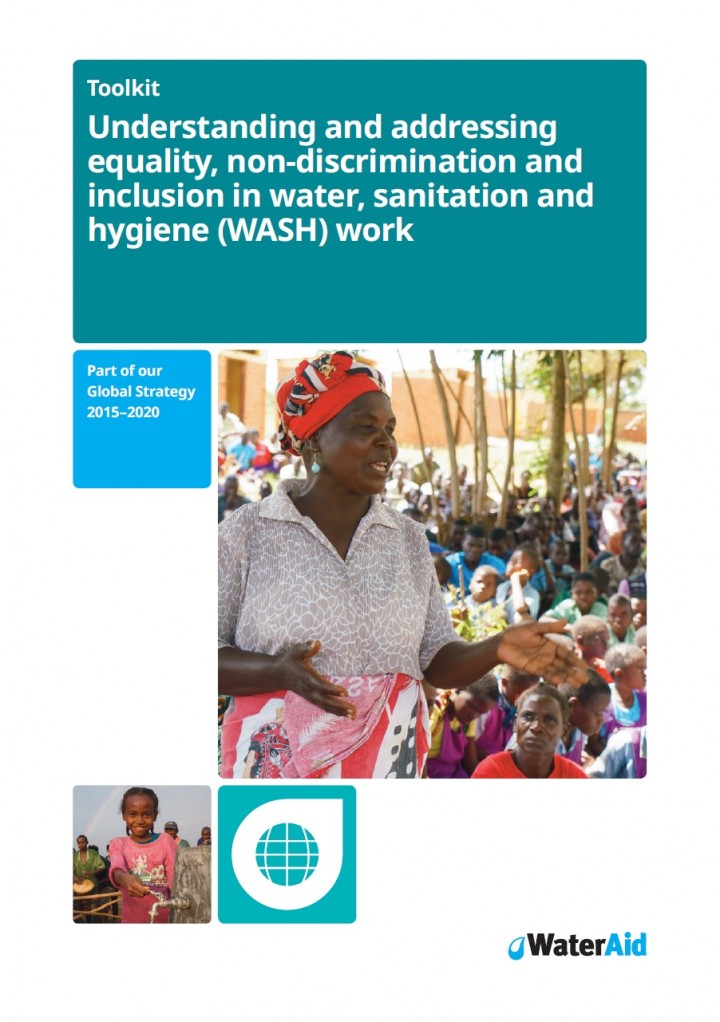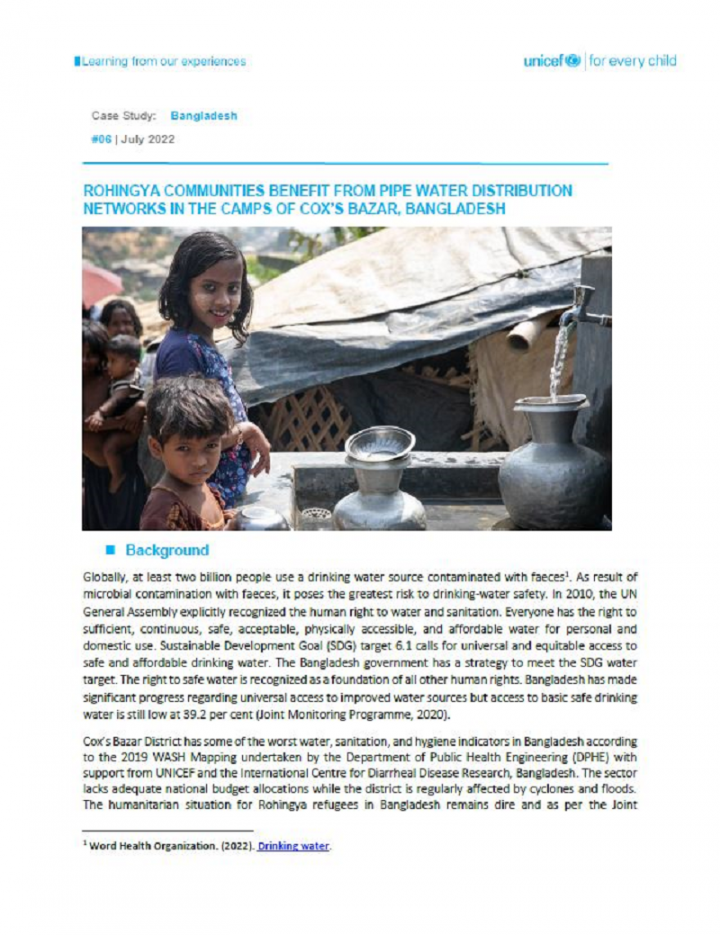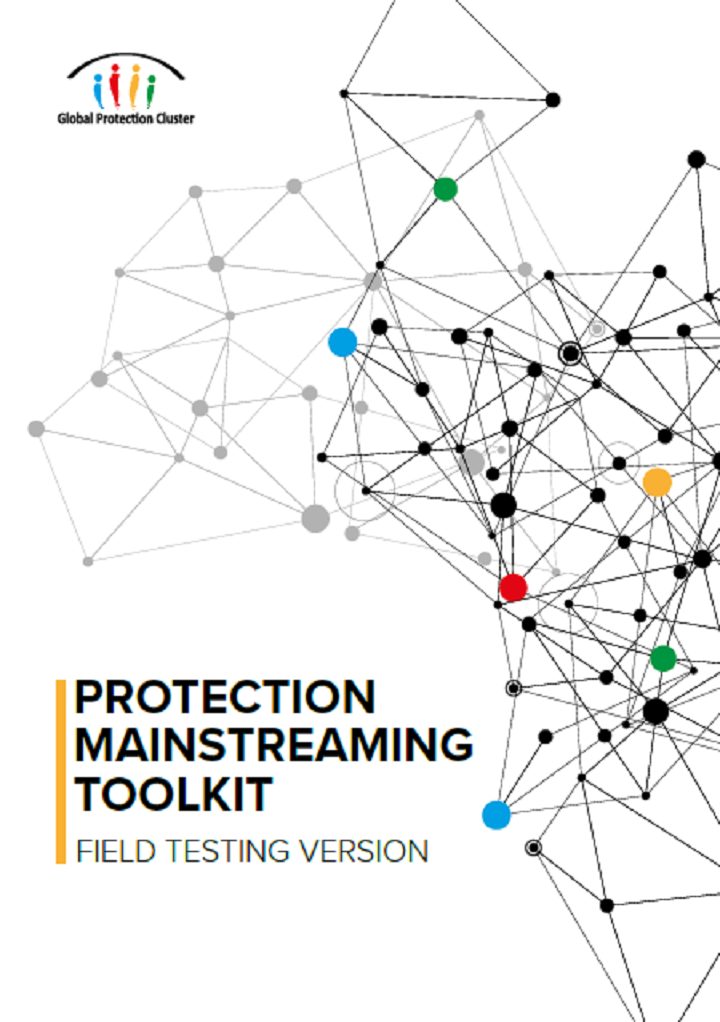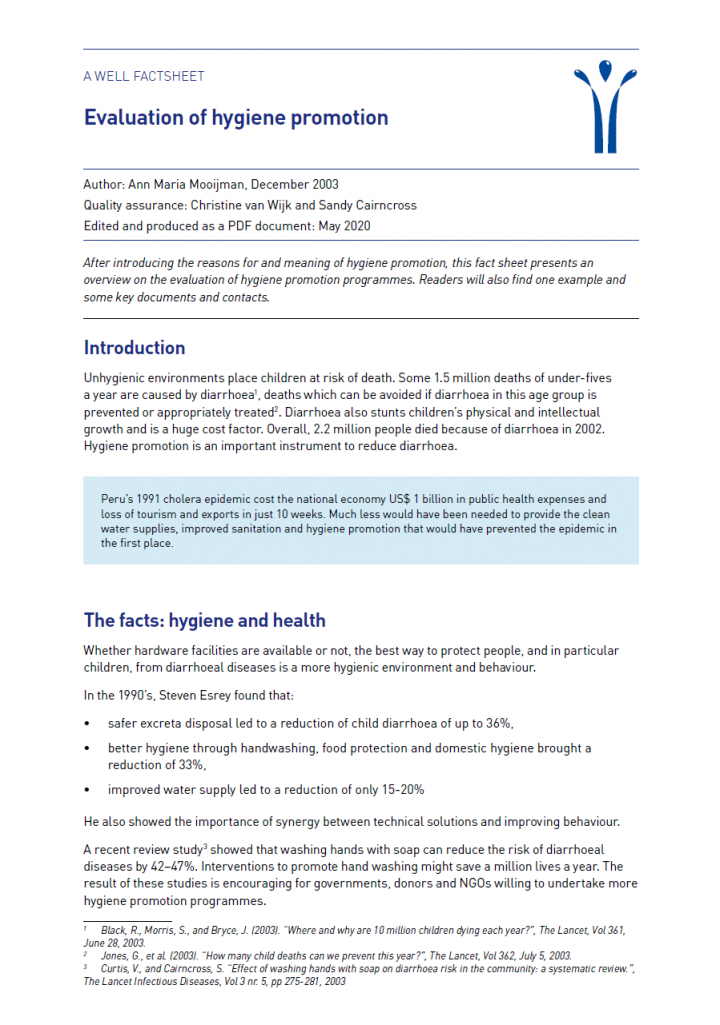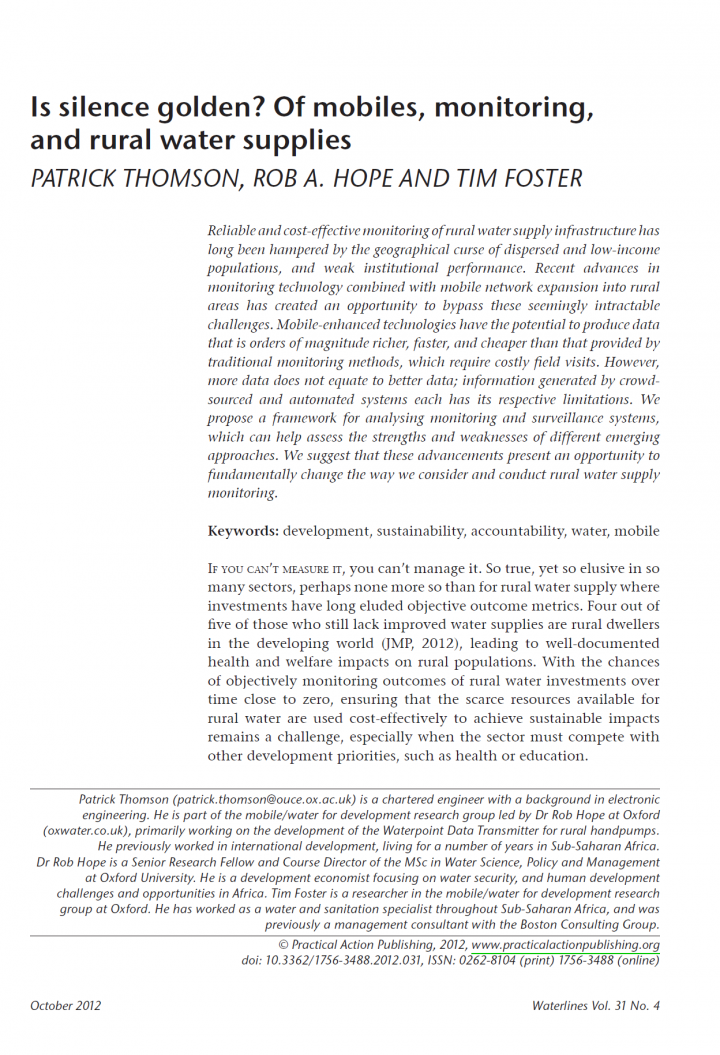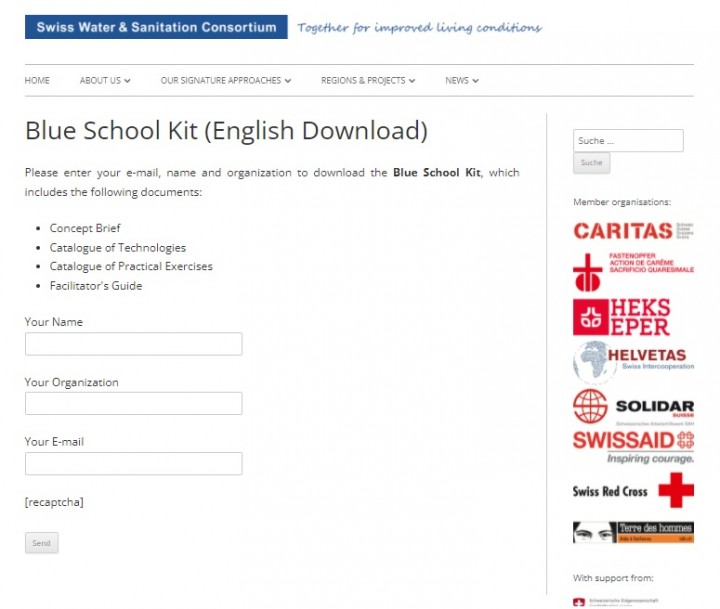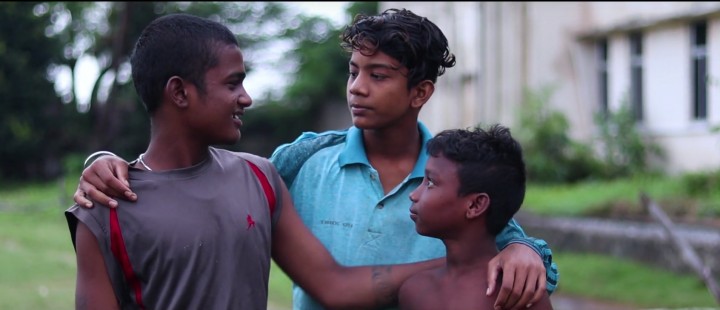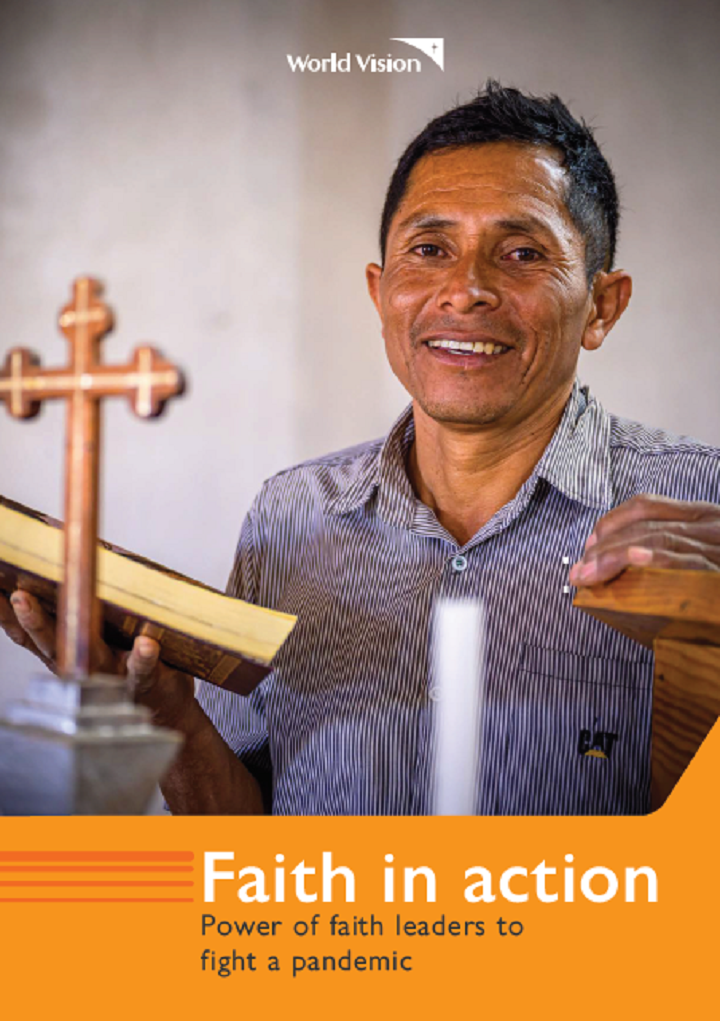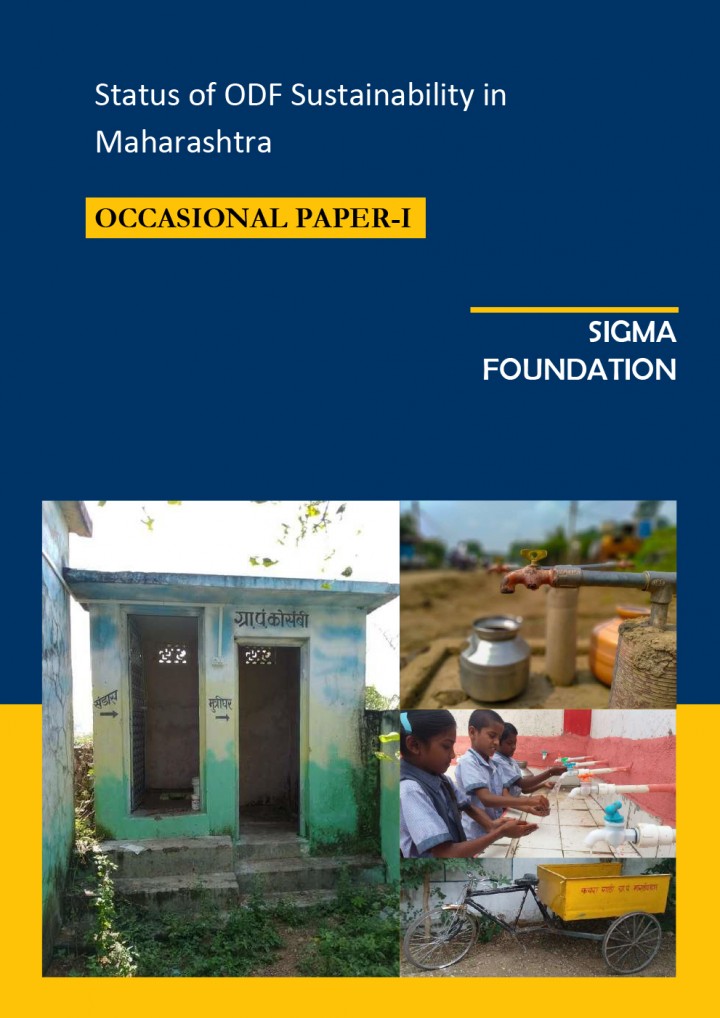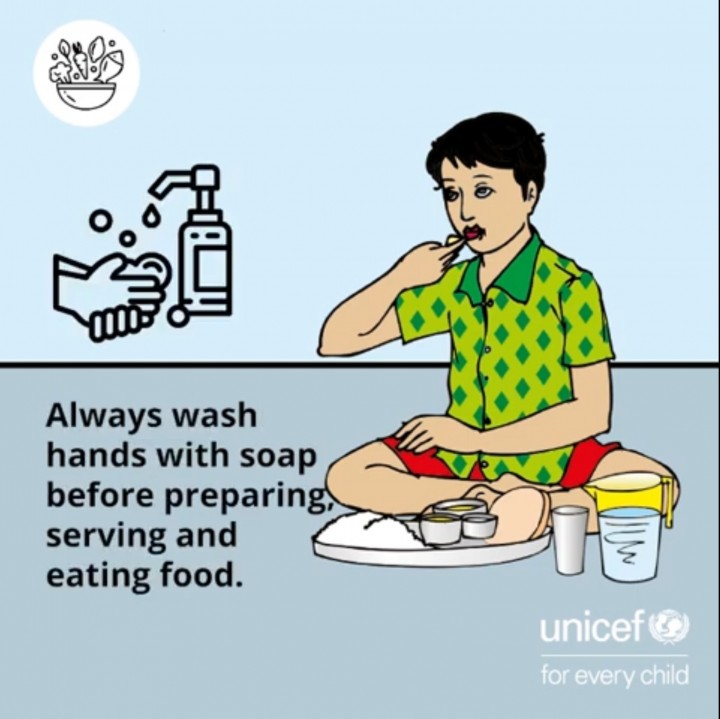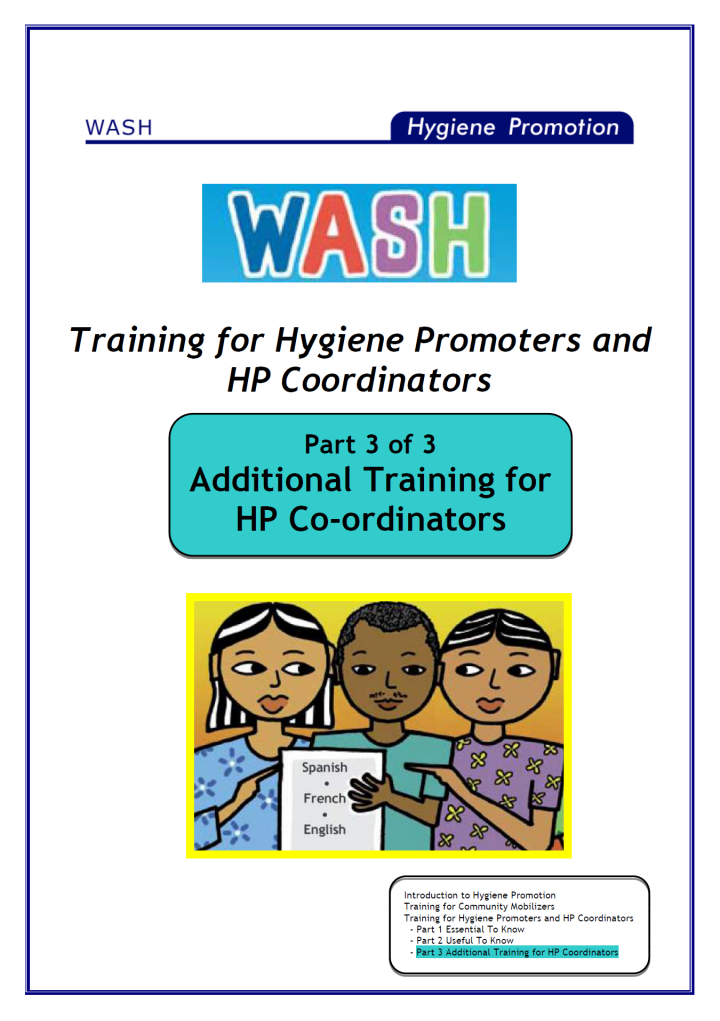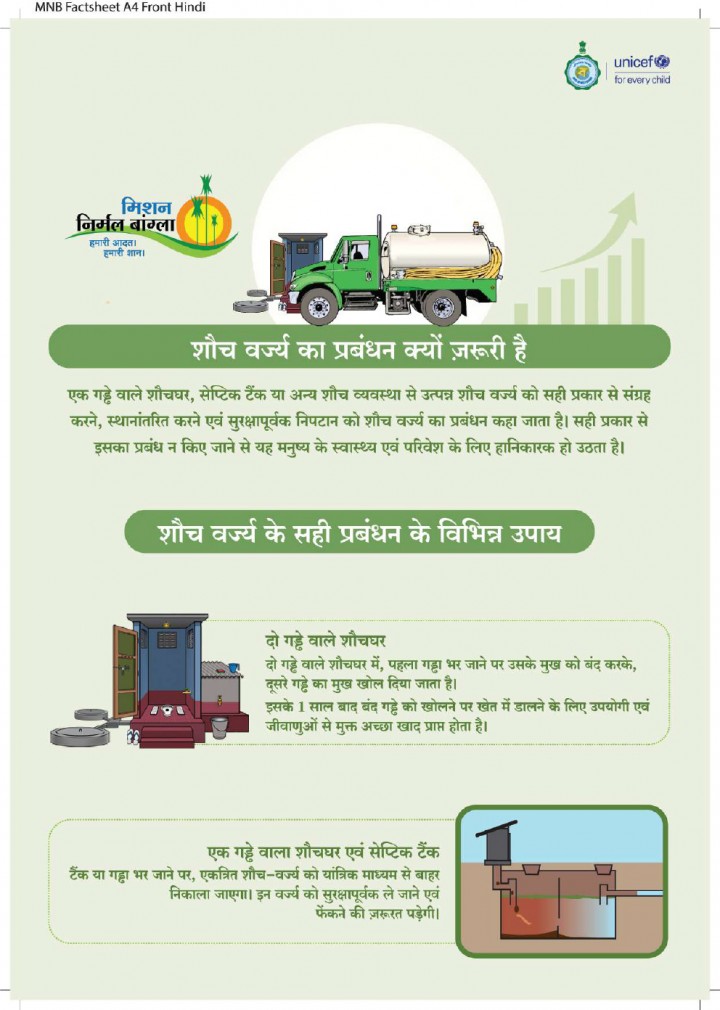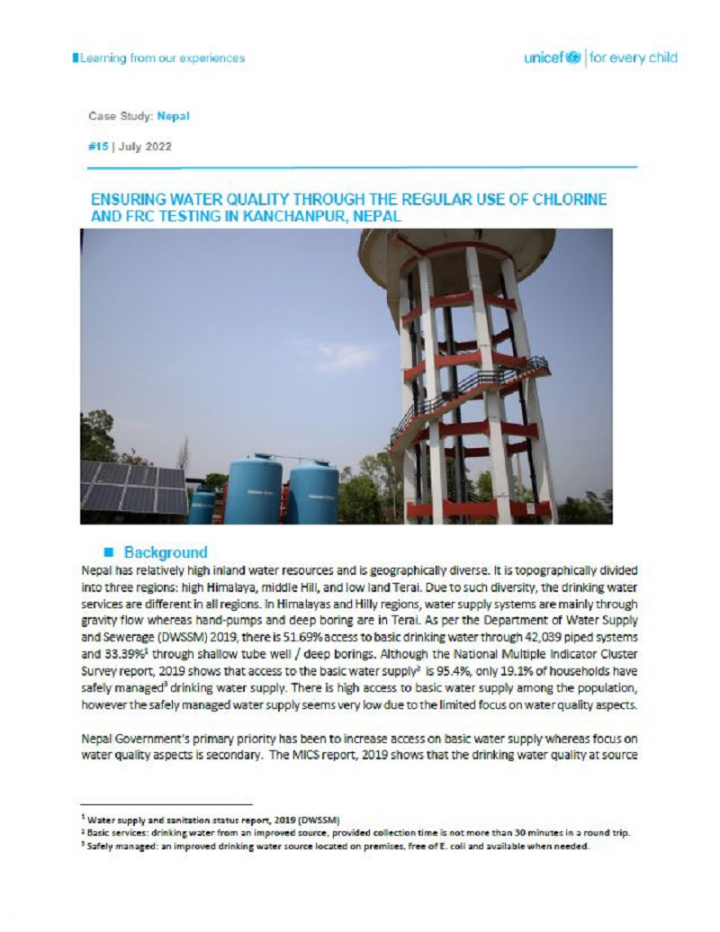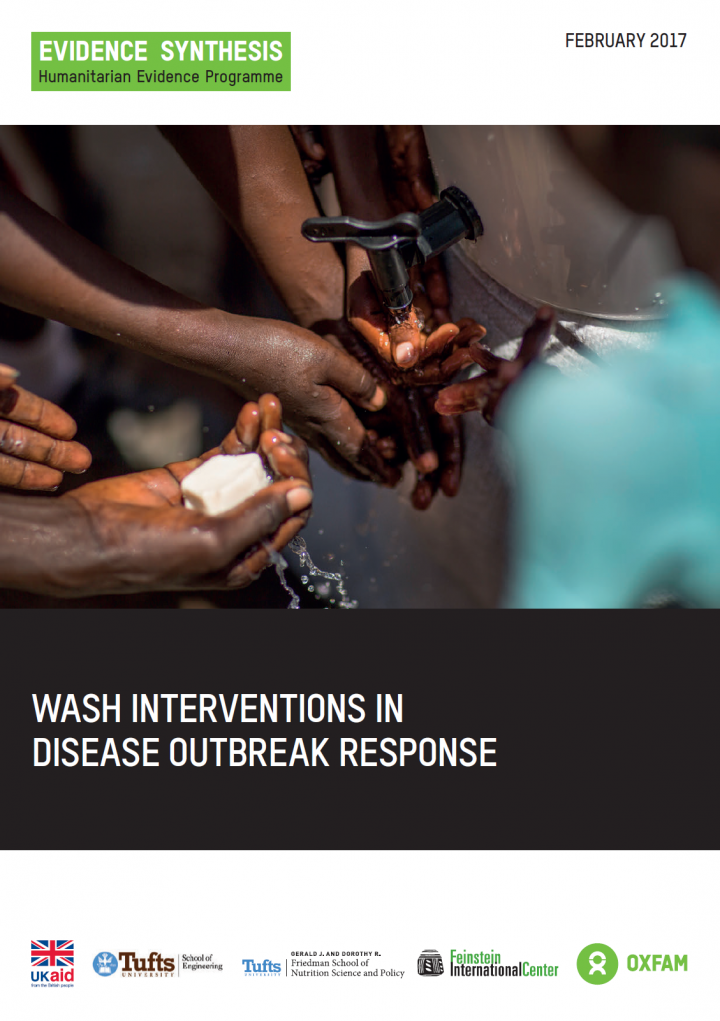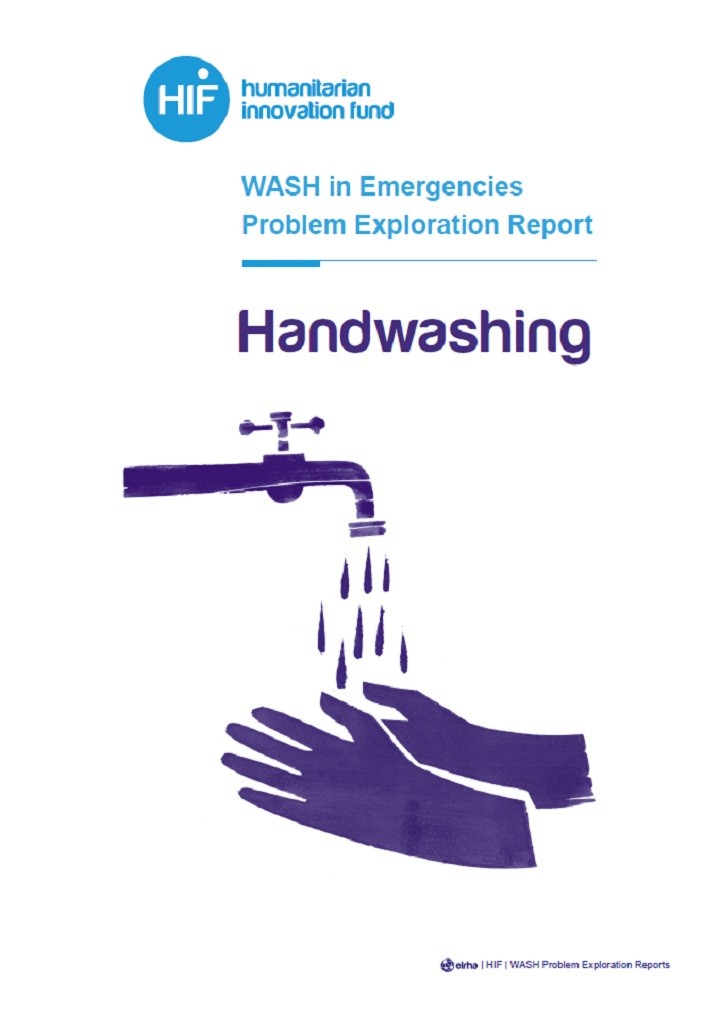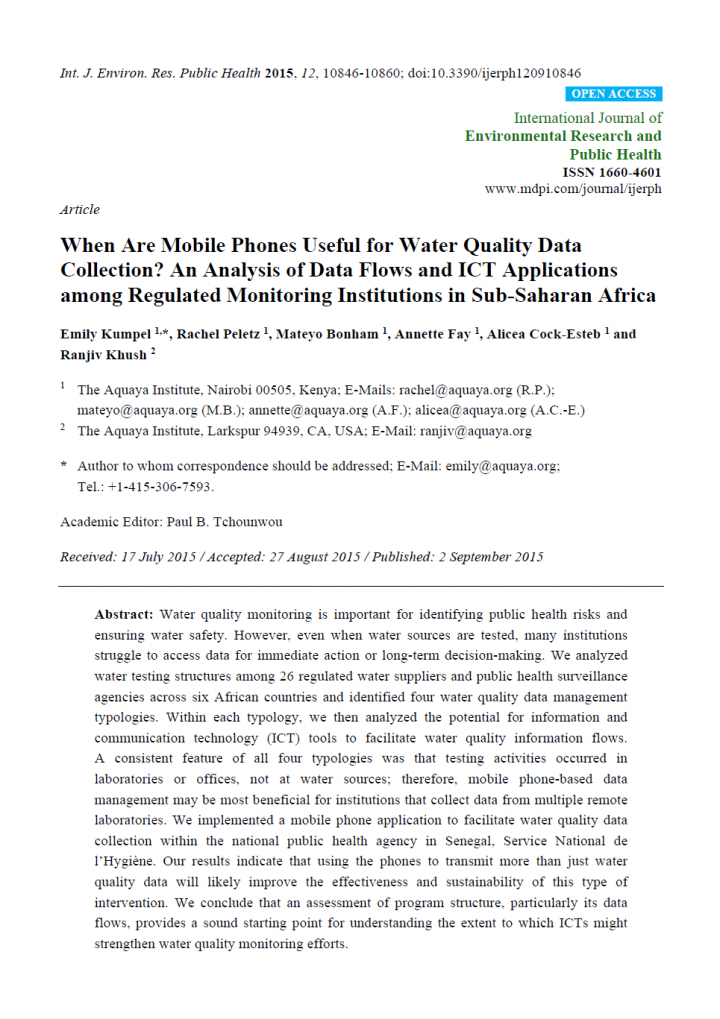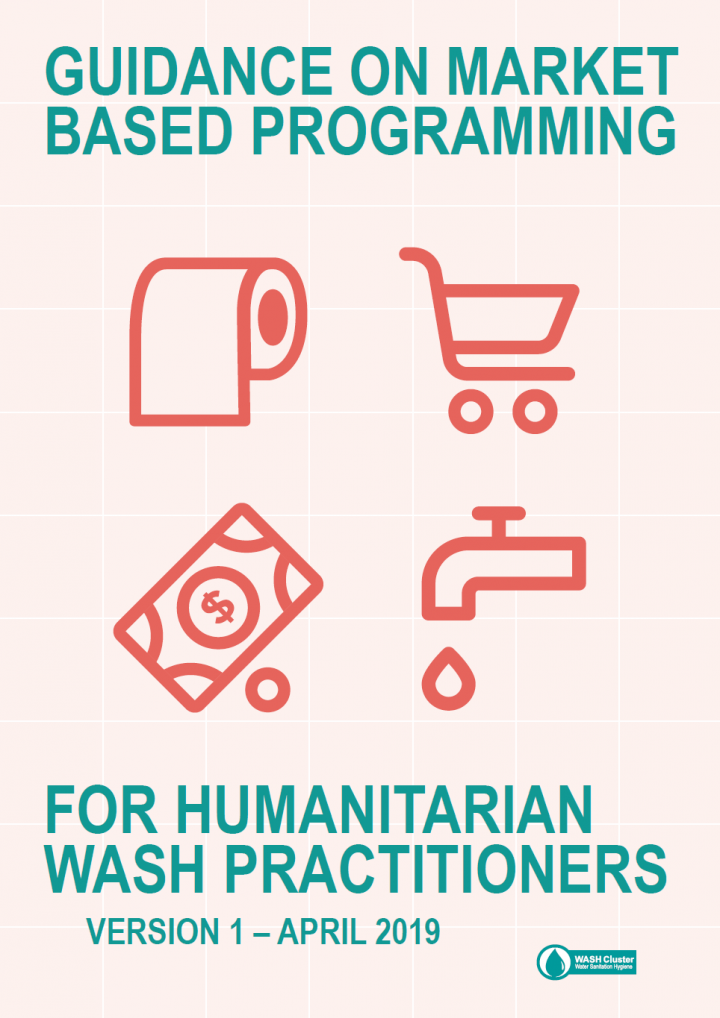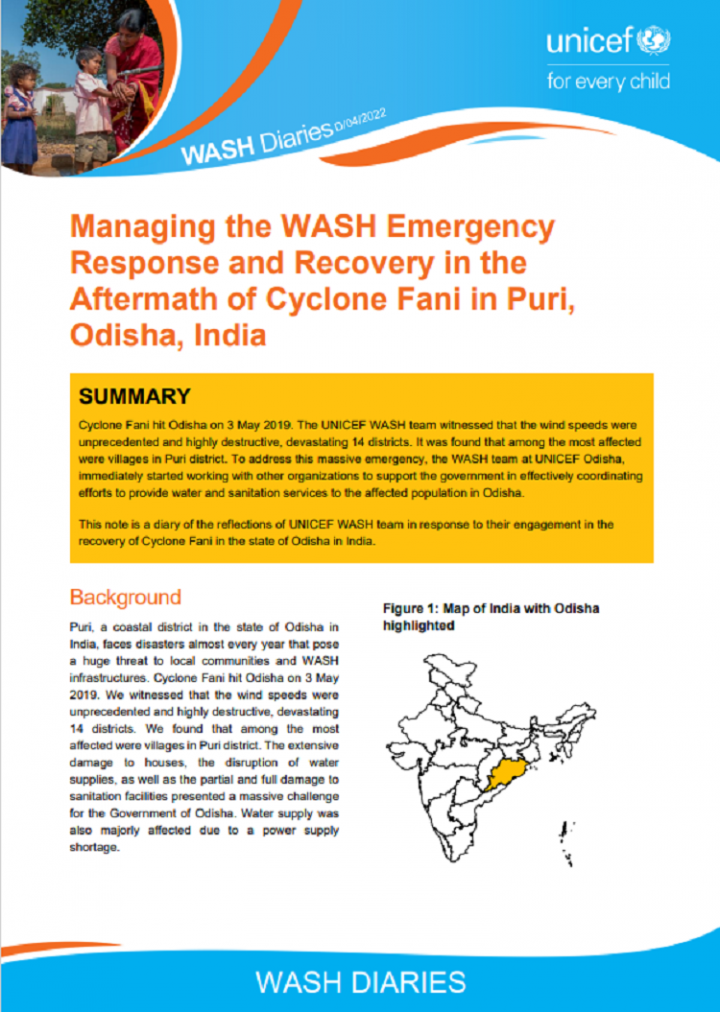Searching for information on Sanitation Workers?
The Sanitation Workers Knowledge + Learning Hub is the best source for all current news, trends, articles and updates on sanitation workers rights around the world.
Roughing filtration is a simple, efficient and chemical free water treatment method for turbidity removal; it can be used as a pre-treatment method prior to slow sand filters or disinfection with chlorine. The main disadvantage of roughing filtration for use in emergency situations is that it uses gravel as a filter medium. Gravel may be unavailable or difficult to transport because of its …
This report is the final output of the ‘Value for Money Study in Global Sanitation Fund Programmes’, hereafter ‘the VFM-GSF project’, funded by the Water and Sanitation Supply Collaborative Council (WSSCC)/Global Sanitation Fund (GSF).
The stated objectives of the project were threefold:
1. To assess GSF-funded sanitation and hygiene implementation programmes to gauge current levels …
Globally, at least two billion people use a drinking water source contaminated with faeces1. As result of microbial contamination with faeces, it poses the greatest risk to drinking-water safety. In 2010, the UN General Assembly explicitly recognized the human right to water and sanitation. Everyone has the right to sufficient, continuous, safe, acceptable, physically accessible, and affordable …
Unhygienic environments place children at risk of death. Some 1.5 million deaths of under-fives a year are caused by diarrhoea, deaths which can be avoided if diarrhoea in this age group is prevented or appropriately treated. Diarrhoea also stunts children’s physical and intellectual growth and is a huge cost factor. Overall, 2.2 million people died because of diarrhoea in 2002. Hygiene …
Reliable and cost-effective monitoring of rural water supply infrastructure has long been hampered by the geographical curse of dispersed and low-income populations, and weak institutional performance. Recent advances in monitoring technology combined with mobile network expansion into rural areas has created an opportunity to bypass these seemingly intractable challenges. Mobile-enhanced …
This film depicts on how unsafe water can affect health of children and their ability to be strong and fit and play football. While one of them is aware about the importance of clean drinking water, he also insists other friends not compromise with the quality of drinking water.
Theory-based interventions can enhance people's safe water consumption, but the sustainability of these interventions and the mechanisms of maintenance remain unclear. We investigated these questions based on an extended theory of planned behaviour. Seven hundred and ten (445 analysed) randomly selected households participated in two cluster-randomised controlled trials in Bangladesh. Study 1 …
The Government Maharashtra has taken up an initiative to reform selected rural villages affected by natural calamities like drought and other social, economic, livelihood and infrastructural challenges. This initiative has been started by recruiting CMRD Fellows in each GP for village planning, community participation and effective execution of the schemes according to the plan.
SIGMA …
This manual contains training materials and handouts to enable facilitators to rapidly prepare training for different levels of hygiene promoters.
It can also serve as a resource for self directed learning by both hygiene promoters and others involved in supporting or managing WASH interventions.
West Bengal has developed a poster that depicts the techniques involved in managing faecal waste and lists the roles and responsibilities of village functionaries in adopting and promoting FSM in the second phase of the Swachh Bharat Mission. In Hindi, this two-page poster provides an overview for the public on FSM.
Nepal has relatively high inland water resources and is geographically diverse. It is topographically divided into three regions: high Himalaya, middle Hill, and low land Terai. Due to such diversity, the drinking water services are different in all regions. In Himalayas and Hilly regions, water supply systems are mainly through gravity flow whereas hand-pumps and deep boring are in Terai. As per …
This evidence synthesis, commissioned by the Humanitarian Evidence Programme and carried out by a team from the Civil and Environmental Engineering Department of Tufts University, identifies, synthesizes and evaluates existing evidence of the impacts of water, sanitation and hygiene (WASH) interventions in disease outbreaks in 51 humanitarian contexts in 19 low and middle-income countries (LMICs).
Water quality monitoring is important for identifying public health risks and ensuring water safety. However, even when water sources are tested, many institutions struggle to access data for immediate action or long-term decision-making. We analyzed water testing structures among 26 regulated water suppliers and public health surveillance agencies across six African countries and identified …
WASH markets are likely to be affected by a crisis. It can create disruption of both supply of and access to WASH-related goods and services. Both need to be considered and addressed by humanitarian responses to people’s needs. But if humanitarian agencies do not consider markets, interventions can accidentally harm these markets and the whole population depending on them. In the case of weak …
The idea of a WASH Network Circle was born in 2022 from bilateral discussions between SuSanA and other networks, who expressed the need for key networks in the WASH sector to harmonise their activities and identify synergies. The WASH Network Circle was officially launched in Bonn in May 2023 during a meeting hosted by GIZ. Key networks including IWA, FSMA, GWOPA, pS-Eau, SSWM, SWEP, WIN, SaniHub …
Cyclone Fani hit Odisha on 3 May 2019. The UNICEF WASH team witnessed that the wind speeds were unprecedented and highly destructive, devastating 14 districts. It was found that among the most affected were villages in Puri district. To address this massive emergency, the WASH team at UNICEF Odisha, immediately started working with other organizations to support the government in effectively …

